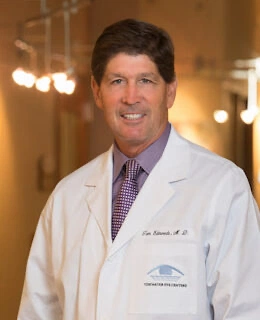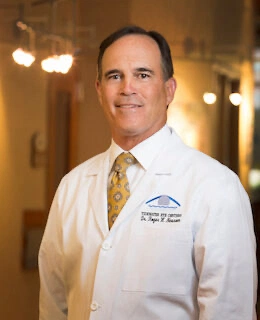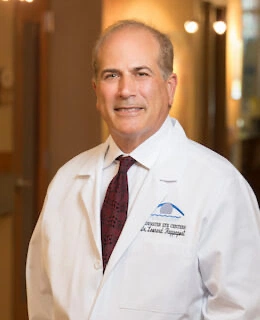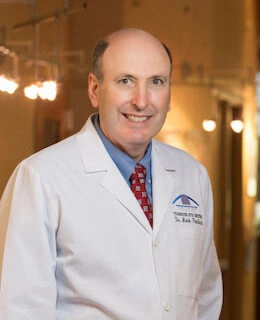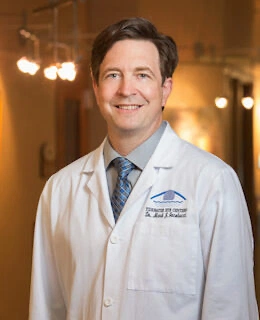
Cataract Surgery
At Tidewater Eye Centers, we understand how important clear vision is for your quality of life. Our dedicated team of experienced eye doctors is here to guide you through every step of your cataract treatment journey. Regain the clarity you deserve with state-of-the-art cataract surgery.
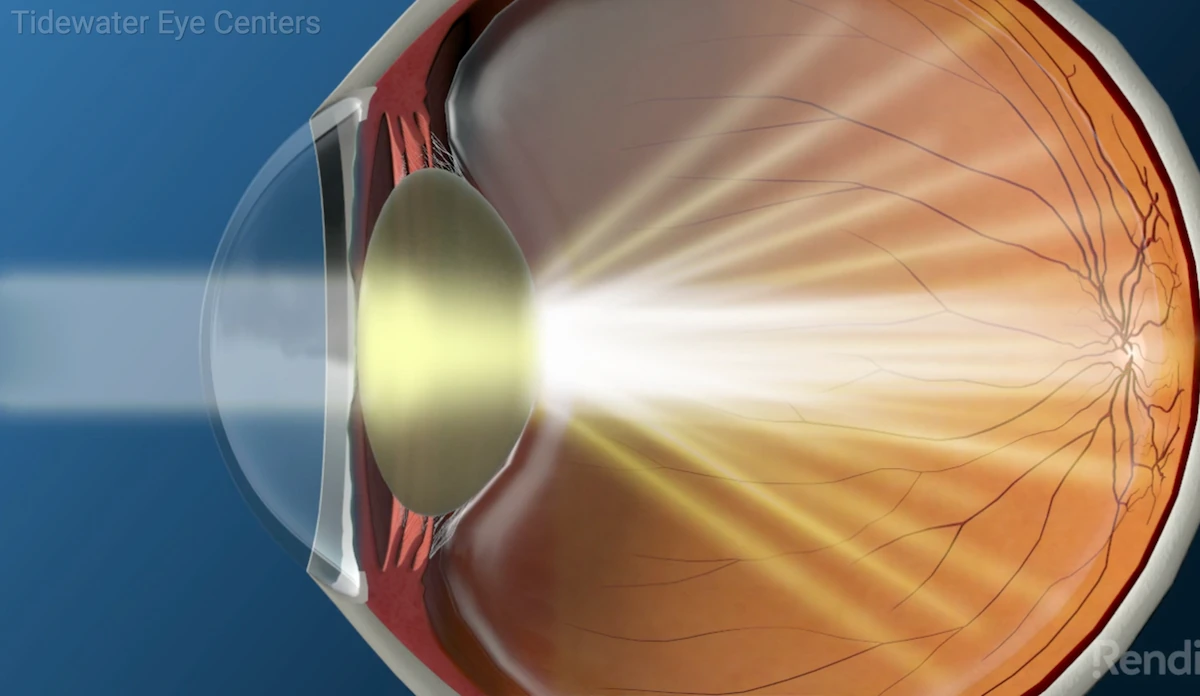
Understanding Cataracts
A cataract is a clouding of the natural lens in the eye, which forms when naturally-occurring proteins build up in the eye. Cataracts prevent light from entering the eye and reaching the retina properly, which leads to vision problems. The development of cataracts is gradual, but they eventually make it difficult to see clearly and can result in vision loss. You can have a cataract in one or both eyes.
Why Choose Tidewater Eye Centers for Your Cataract Surgery?
Imagine life without the haze of cataracts. Our advanced cataract surgery options, including advanced intraocular lens (IOL) choices, are designed to restore your vision and improve your day-to-day life. Whether you’ve been dealing with fuzzy vision, sensitivity to light, or difficulty with daily tasks, our experienced cataract surgeons are ready to help.
Expertise:
Our team boasts of experienced specialists in performing successful cataract surgeries.
Personalized Care:
Your unique needs and concerns are our top priority, and we’ll tailor a treatment plan that’s just right for you.
Leading-Edge Technology:
We stay at the forefront of eye care technology to provide you with the most advanced cataract treatment options available.
Compassionate Approach:
Our caring staff is here to offer support and answer your questions, ensuring your comfort every step of the way.
Cataract Surgery: What to Expect
Regain your clarity and reclaim your world with a safe and effective procedure.

What Is Cataract Surgery?
While mild cataracts may be correctable with glasses or contacts, cataract surgery is the only way to effectively treat moderate to advanced cataracts. During cataract surgery, the cloudy lens is removed and replaced with an artificial intraocular lens (IOL). Cataract surgery is an outpatient procedure and one of the most commonly performed surgeries.
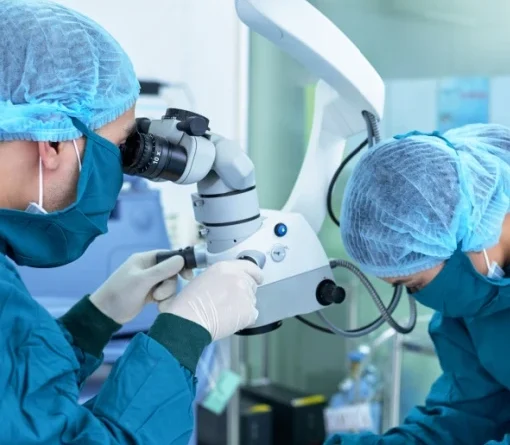
Preparing for Cataract Surgery
Your journey begins with a comprehensive evaluation. Your eye doctor will assess your eye health, discuss your symptoms, and recommend the best course of action for your needs. If cataract surgery is right for you, they will also discuss your IOL options and help you choose one that is best for your vision and lifestyle.
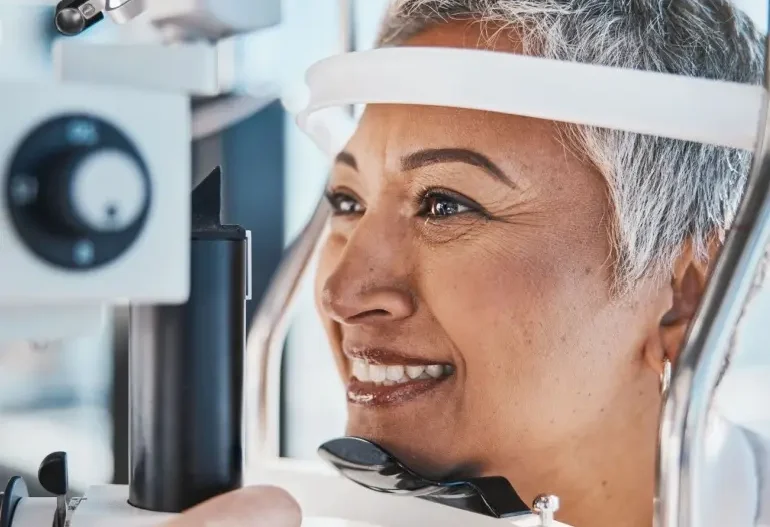
Your Cataract Surgery Procedure
Cataract surgery is a minimally invasive procedure that typically takes the surgeon less than 30 minutes. Our team utilizes small incisions and advanced techniques to gently remove the cloudy lens and replace it with a clear artificial lens, improving your vision instantly.
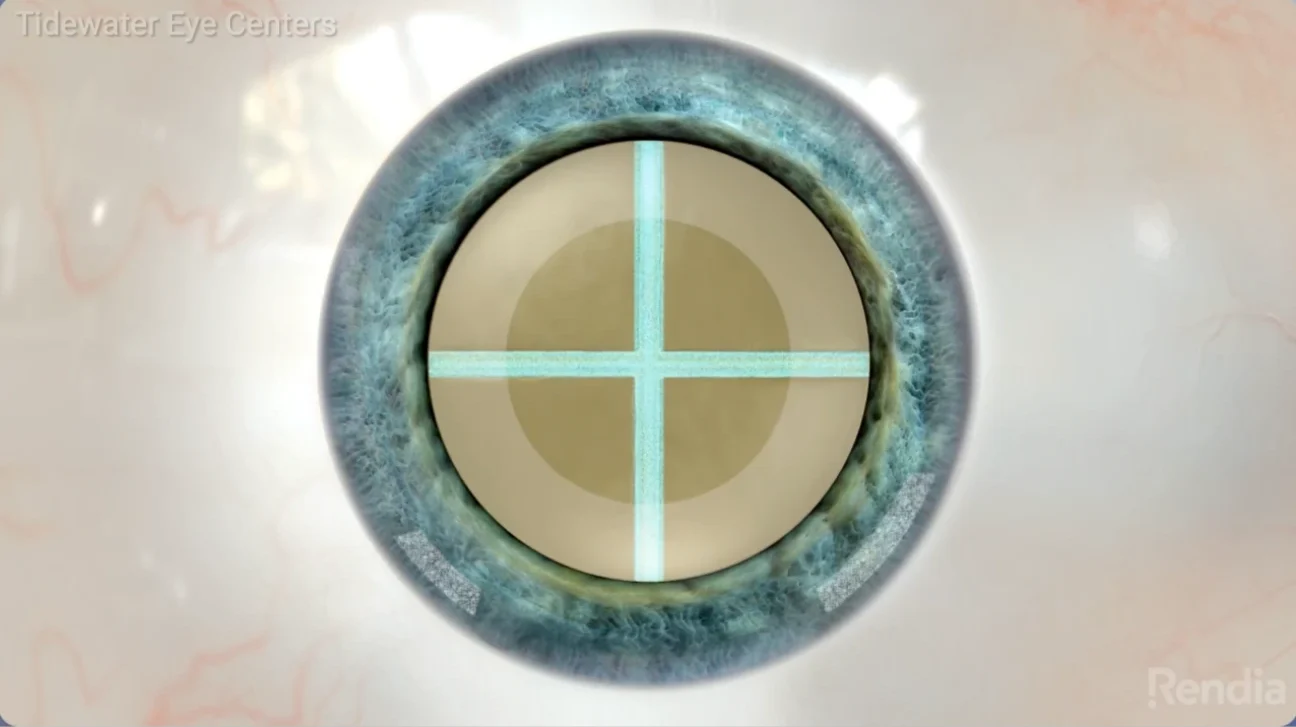
Blade-Free Cataract Surgery
The world-class cataract surgeons at Tidewater Eye Centers use advanced technology to offer blade-free cataract surgery. During cataract surgery, small incisions are made in order to remove the clouded lens from the eye and replace it with an IOL. In a traditional cataract surgery, the incision is created by hand. With the LenSx® femtosecond laser, we are able to provide a more accurate and customized cataract surgery experience. The LenSx has a computer controlled laser that creates precise incisions using a high-resolution, 3D surgical platform.

Recovery After Cataract Surgery
After your surgery, you will have certain restrictions you need to follow. You will not be able to drive home from surgery on your own, so plan to have a friend or family member drive you home. Depending on your individual needs, your surgeon may provide dark glasses to reduce any glare you may experience after surgery and give your eyes a chance to rest and heal. Your doctor may also prescribe you eye drops or other medicine to help you recover from cataract surgery. After a short recovery period, many patients report enhanced clarity and brighter colors immediately. You will need to restrict certain activities, such as swimming and strenuous exercise, for several weeks after surgery. We’ll provide you with detailed postoperative instructions and schedule follow-up appointments to ensure a smooth recovery process.
Understanding Cataracts
Cataracts are a common age-related condition where the natural lens of the eye becomes cloudy, causing vision to deteriorate. The National Eye Institute estimates that about 50% of Americans have cataracts by the age of
Trusted Source
Cataract Data and Statistics
National Eye Institute
Go to Source
75.
While cataracts are not painful, they can severely interfere with quality of life and can even cause blindness if left untreated.
Cataract Symptoms
- Blurred vision
- Faded color vision or colors appearing more yellow
- Difficulty driving at night
- Sensitivity to
Trusted Source Cataracts Mayo Clinic Go to Source glare
Intraocular Lens Options
At Tidewater Eye Centers, we are pleased to offer a variety of lens options to our patients. Your eye surgeon will help you determine which option is best for your unique eyes.
Advanced Technology Intraocular Lenses (ATIOLs)
Patients who wish to further improve their vision can do so with ATIOLs. The best lens for you depends on many factors, including your lifestyle and specific vision needs. In addition to removing the symptoms of cataracts, these advanced lenses can also correct nearsightedness, farsightedness, astigmatism, and even age-related loss of near vision (presbyopia). ATIOLs can help reduce or even eliminate the need for eyeglasses and contacts. Additional costs are involved, and many patients choose to use an interest-free financing option or pay with cash or credit card. Contact us to discuss your options.
Basic Monofocal (Single-Focus) IOLs
If you don’t mind wearing glasses, you may opt for a basic monofocal (single-focus) IOL. This traditional lens is used to replace the cloudy lens of the eye, reversing the effects of cataracts. This technology has been available for many years and improved millions of patients’ vision. The lens corrects your vision for one distance only. This means that you will continue to be dependent on glasses for some tasks, such as reading. Basic monofocal IOLs are covered by most medical insurance plans.
Tidewater Eye Centers uses the most advanced lenses and will be happy to discuss the best options for your unique eyes. To find out which intraocular lens option is best for you, schedule a consultation with a Tidewater Eye Centers cataract surgeon today.
Light Adjustable Lens
The Light Adjustable Lens is the only adjustable intraocular lens (IOL) available that allows optimization of your vision after lens implantation and healing. If you and your doctor select the Light Adjustable Lens, the first step is to have your cataract safely removed and the adjustable IOL implanted. The cataract removal and IOL implantation procedure is the same as if you selected a non-adjustable IOL.

Frequently Asked Questions About Cataracts and Cataract Surgery
What causes cataracts?
Cataracts are a normal part of aging that happens when proteins in the eye start to break down. Some people may be predisposed to cataracts due to genetics or certain health conditions.
Can cataracts be prevented?
While there are steps you can take to protect your overall eye health, such as wearing UV-protective sunglasses and not smoking, cataracts cannot be prevented. The good news is that modern cataract surgery is a safe and effective solution.
When is cataract surgery necessary?
Cataract surgery is recommended when cataracts significantly affect daily activities and quality of life. When vision loss starts to interfere with tasks like driving, reading, or recognizing faces, surgery may be considered.
Is cataract surgery safe?
According to the American Refractive Surgery Council, cataract surgery is widely known as a safe and effective procedure, with a complication rate under
Trusted Source
Cataract Surgery
American Refractive Surgery Council
Go to Source
2%.
How much does cataract surgery cost?
There are a number of factors that influence the cost of cataract surgery. These include whether you need cataracts removed from one or both eyes, the type of surgical equipment used, and the miscellaneous needs of your unique eyes. For more information about the cost of your procedure and payment options, contact your Tidewater Eye Centers care team.
Will I still need glasses after cataract surgery?
The choice of intraocular lens (IOL) used during surgery can influence your need for glasses after the procedure. Standard monofocal IOLs correct vision at a single distance. Some premium IOLs are designed to correct refractive errors like nearsightedness, farsightedness, astigmatism, and presbyopia, reducing the need for glasses. Depending on the IOL you choose, you might still need reading glasses or glasses for other specific tasks.
What type of IOL is best for me?
At Tidewater Eye Centers, we offer a wide range of premium IOL options, including multifocal lenses that can correct vision at multiple distances, as well as lenses that treat astigmatism. Your eye doctor will explain which options may be right for you. Learn more about IOL options.
Convenient Locations in Chesapeake, Portsmouth and Virginia Beach VA
We Look Forward to Seeing You!

805 Battlefield Blvd N #111, Chesapeake, VA 23320
Chesapeake VA, 23320

3235 Academy Ave #201, Portsmouth, VA 23703
Portsmouth VA, 23703

1788 Republic Rd #200, Virginia Beach, VA 23454
Virginia Beach VA, 23454
Contact Tidewater Eye Centers for Cataract Surgery
The eye doctors at Tidewater Eye Center are committed to providing high quality eye care for patients in the Virginia Beach area. Our highly experienced cataract surgeons have helped many patients improve their quality of life with sight-restoring cataract surgery. Complete the form below with any questions or to schedule your consultation appointment.
1 National Eye Institute. Cataract Data and Statistics. Available: https://www.nei.nih.gov/learn-about-eye-health/eye-health-data-and-statistics/cataract-data-and-statistics/cataract-tables
2 Mayo Clinic. Cataracts. Available: https://www.mayoclinic.org/diseases-conditions/cataracts/symptoms-causes/syc-20353790
3 American Refractive Surgery Council. Cataract Surgery. Available: https://americanrefractivesurgerycouncil.org/cataract-surgery/
The doctors at Tidewater Eye Centers have either authored or reviewed the content on this site.
